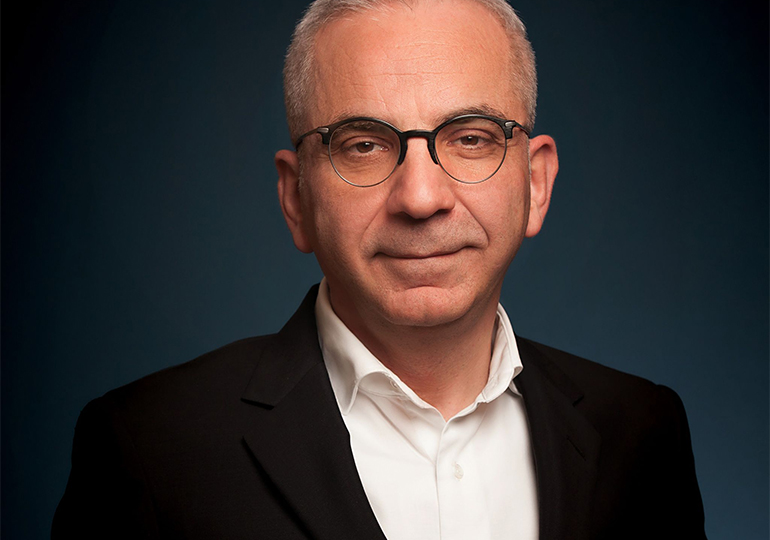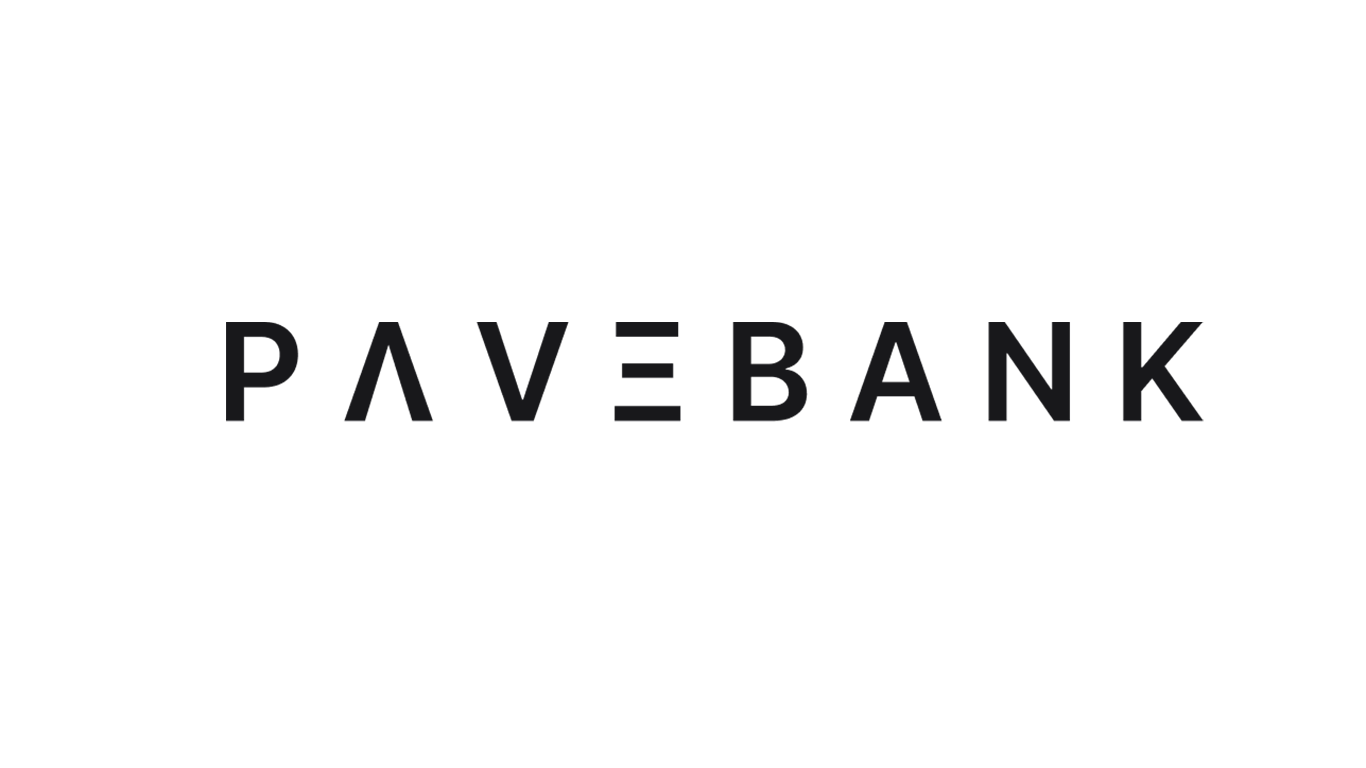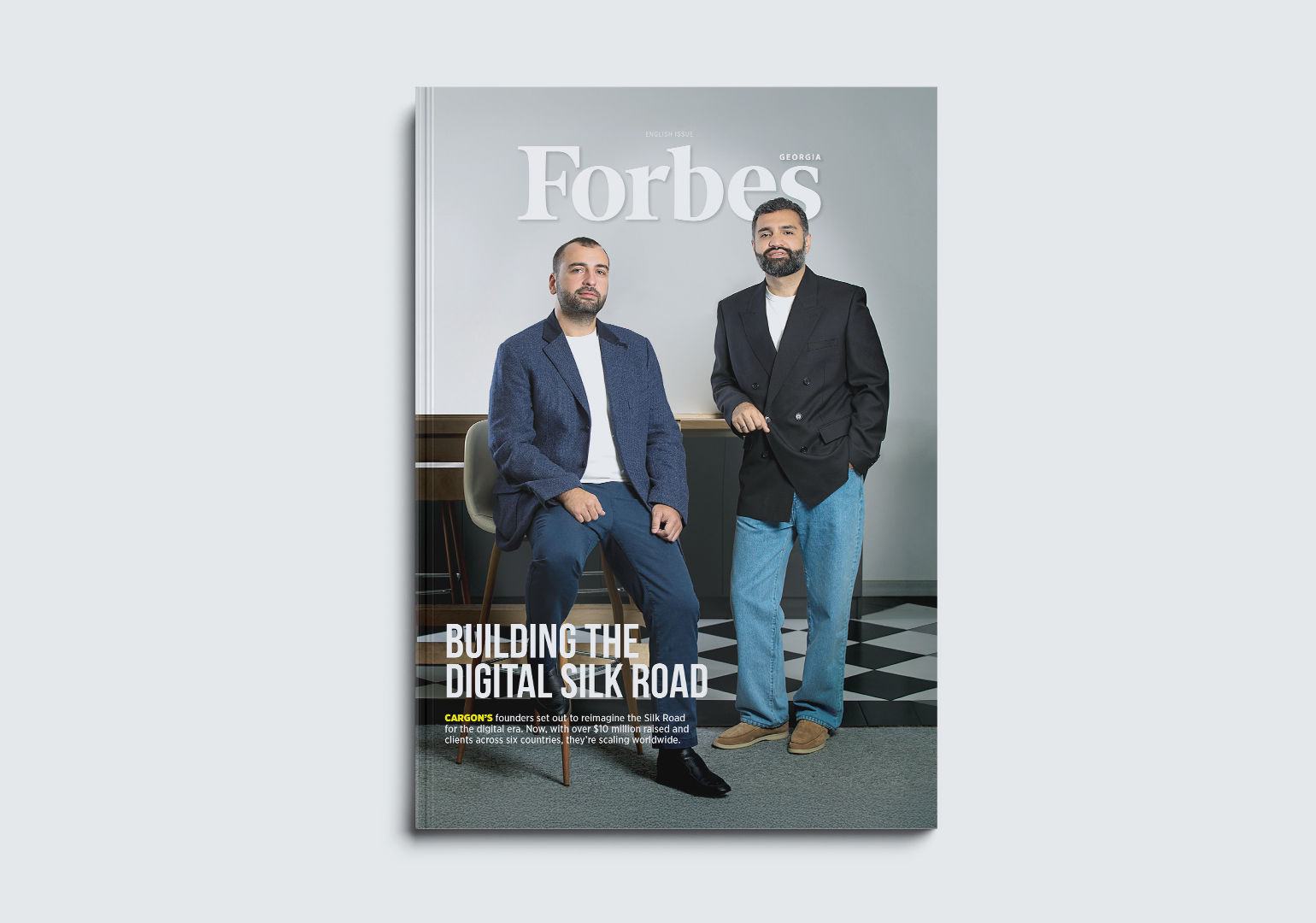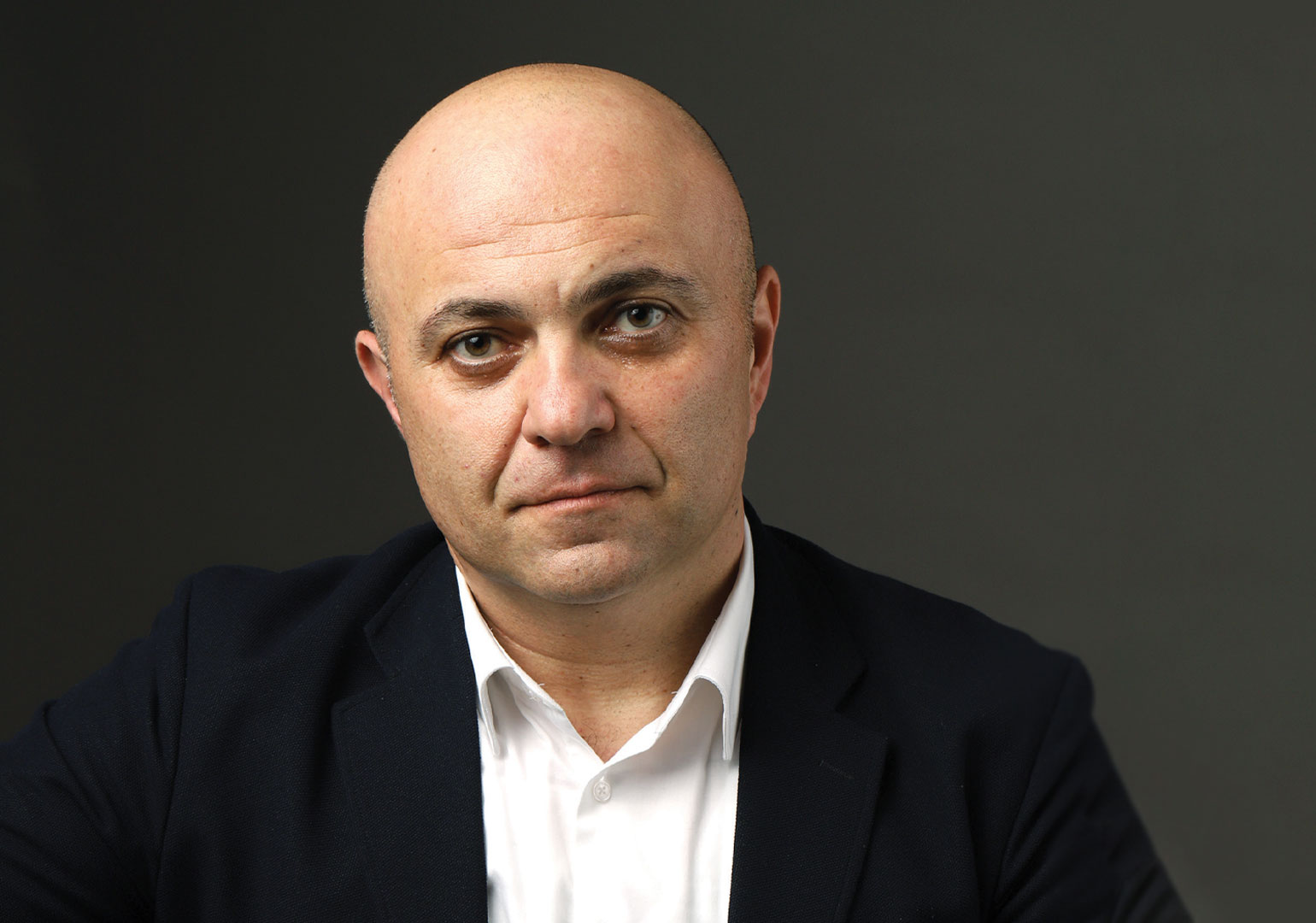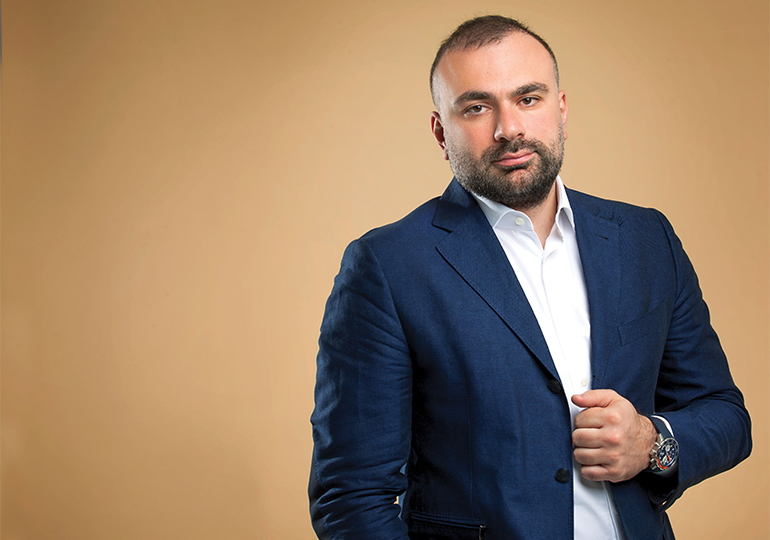Five years after entering the market, TBC Insurance has become the undisputed leader in the retail insurance market. In these five years, TBC Insurance collected more than ₾308 million in premiums, of which ₾103 million accounted for car insurance and ₾91 million for life insurance. One goal has been achieved, and the next one is already in place. Paata Ghadzadze and TBC have their sights set on developing the life insurance segment in Georgia.
In this article, we will look at TBC’s five years in the insurance industry. From the very beginning, the main objective of TBC Insurance was to fully exploit the retail market, and the company has clearly achieved this goal. Based on data from the third quarter of 2021, TBC Insurance currently has an 18.8% share of the insurance market, 32% of the retail insurance segment and 12.5% of the corporate insurance market, which places the company first and third in the retail and corporate segments respectively.
I met Paata Ghadzadze at the head office of TBC Insurance. By the time the interview was over, I had enough material to create my own insurance handbook.
What are your main achievements in the last five years?
Over these past five years, TBC Insurance has developed into an institutionally complete company. Although we operate under the TBC umbrella brand, everyone recognizes TBC Insurance as a separate institution, which shows that we have become a significant player in our own right. Furthermore, we are market makers, meaning that our development has outpaced market growth. While the market grew by 13-16% per year, our average growth exceeded 20%. We are now the second or third largest company in the sector.
One can expect growth figures like this from a small company, but in your case, we are talking about a large firm that accounts for nearly two-thirds of total market growth. How did this happen?
New products, new systems, new and different services – naturally, they all played a role. However, the most crucial factor is that we are market makers, which manifests itself in two ways. First, we are the undisputed leaders in the most important market segment – car insurance. This applies both to third-party liability and comprehensive insurance (CASCO).
Secondly, we are the market makers in standards. We have implemented several important standards that have been accepted as the market norm. More specifically, this concerns rapid payment for products and services, which has led to increased consumption. We also narrowed the distance between the insurance company and the customer by removing the psychological barriers that existed in this regard through the automation of almost all low-cost products and services, meaning that people no longer need to get involved.
Can you provide specific examples for our readers?
We have fully automated and integrated medical services in the vehicle insurance segment by minimizing paperwork, administration, and logistics wherever we could. Ultimately, this created a certain standard that has been adopted by the market.
Are there segments where this approach would not work?
Potentially life insurance is an overly complex product. However, we are working hard to demonstrate how valuable it would be to develop this segment in Georgia. We are trying to get close to European standards because we want to see Georgia become a developed European country. Life insurance is a highly advanced product in Europe.
Now that you are market maker, is it easier to achieve this standard?
Developing the life insurance segment is our main objective right now. However, the most important achievement of the last five years has been to establish TBC Insurance as an institutionally accomplished entity.
TBC Insurance is now an independent brand in TBC Group’s portfolio. It is already being widely perceived as a separate entity. Many of the standards introduced by us are small, but if seen collectively as a mosaic, they help raise the bar and increase consumption in our industry.
This is how we achieved our status as market makers, which means that we exceed the market growth rate by 6-7% each year.
Since you have emphasized this point several times, could you tell us why it was so important for TBC Insurance to become an institutionally accomplished project?
An institution is important because a certain connection needs to be established with it. An environment in which people frequently interact with institutions should be perceived as an area of opportunity. We can call it a system, ecosystem, or corporation. To achieve this, an institution must have a distinctly human character.
It is particularly important for people to have a partner company in the insurance sector. Insurance concerns people’s everyday lives, which can only be managed by a properly functioning institution. You need to have a team of people who will interact with the customer, as well as digital systems. The goal is to make life easier, and this can only be achieved by a powerful financial institution with a strong, trustworthy, and desirable high-quality brand.
People and businesses have complex needs. They constantly need to feel supported by a strong institution. Insurance is part of people’s everyday lives – health, vehicles, life, property, business, you name it. Our job is to create maximum comfort for them and let them feel our support. This is also a part of our role as market makers.
What were the key milestones for you in the last five years?
The most important milestone was the decision to establish an insurance business in the TBC Group. In partnership with several insurance firms, we accumulated certain product-related knowledge. Because TBC Bank covers a large part of the population in the service sector, it has gathered a considerable amount of data on behaviour models. We analyzed the changes in the behaviour patterns of both small and medium-sized businesses and individuals and saw business opportunities, as well as the chance to develop TBC as a brand and financial institution in this field.

Did you know from the beginning what you wanted from TBC Insurance as an institution?
Previously, there were small, niche-type insurance companies, but we never imagined ourselves to be like them. We saw ourselves as a broad, large-scale and established institutional novelty for both people and businesses.
The company’s market share figures seem like a step in the right direction. Let’s continue analyzing the key milestones – how have you arrived at the point where you are today?
The first stage was to purchase Kopenbur – a niche company with an interesting management team and, most importantly, a high-quality portfolio upon which we built a new brand in the shape of TBC Insurance.
Secondly, we quickly assembled a team of professionals. We brought professionals from different companies and from TBC Group itself on board. We started with the so-called agile programme and proceeded to take small steps in a project format to achieve development in different areas. We managed to put together a good team of managers and frontline staff who serve our clients.
The third step in this institutional project was to create systems and conduct digitalization. I am not only talking about integrating insurance into different platforms but also about creating independent ecosystems to ensure that when it comes to buying insurance, paying out or making changes in the policy, the entire process will be as simple and customer-oriented as possible. Naturally, this required investment in software, human resources, and project groups.
For the last five years, we have been working with a project format. We had a very specific, results-driven approach that was based on our values.
Once again, could you provide any practical examples?
For example, with regards to comprehensive insurance, simplification concerns both the documentation part of the process and the customer relationship, as well as the speed of the process and the perception that the service is fast.
Another good example is buying travel insurance: This used to be quite a costly process that required integration with other business industries. We managed to create a fully independent system, and now clients can purchase travel insurance over the Messenger app. This saves them a lot of time queuing, filling out forms, and so on. We simplified this service by integrating a bot into the Messenger app. This process will become simpler with each subsequent trip, as data will be saved, and the process becomes automated.
Another good example is medical insurance: Contacting the family doctor, circulating referrals, getting an appointment with the family doctor or at a hospital – all these processes can be automated and digitalized.
They must also become habitual, right?
One of the characteristics of TBC’s corporate culture is that it is a marathon: We know what long-term trends we need to create, and what we need to achieve. This process consists of small projects and results. We have spent the last five years accumulating these results.
You also mentioned the construction of specific ecosystems for the insurance sector – what exactly did you mean by that?
I would highlight three ecosystems: The first is Redmed, which operates in the field of medical services. It is an open ecosystem that facilitates medical consultations that do not require in-person visits to a doctor. This can eliminate minor discomforts concerning transport, logistics, parking, or automation of prescriptions.
The second is a portal that automatically displays any changes to the terms of insurance policies. This is particularly helpful to the HR departments of large corporations– any changes to the terms of an employee’s insurance policy will appear in the joint corporate insurance system within seconds.
Finally, I would highlight the open platform Logista, which provides container insurance in the field of cargo transport. We offer the carriers more than just insurance. For example, we offer to manage and digitalize documents for them. Logista is currently used by almost every major transportation company. We have made their lives easier and created new opportunities for them.
Creating these platforms was also part of the digitalization process, but the most important thing was to understand what the needs were, what we could simplify, and then determine our place in the insurance field.
“WE HAVE INTRODUCED SOME OF OUR IMPORTANT STANDARDS, WHICH MARKET HAS ADOPTED”.
Where do you see development potential?
What is the essence of insurance? The more people who are insured, the cheaper the service becomes. Only around 8-9% of vehicles are currently insured because the fleet is old. I am not talking about mandatory insurance, which is a separate matter. The fleet is slowly being replaced, which creates great opportunities in this insurance segment.
There is also potential in accident insurance during the skiing season. Light and heavy injuries happen every day. The cost of insurance is so low that people may be tempted to purchase it. This may be integrated into access to ski lifts. The same can be said about injuries in fitness clubs.
Travel insurance is a good example of a product that appeared due to high demand. Accidents, loss of luggage, flight delays – all of this is now integrated into the travel insurance package.

You have listed things that most of us have experienced at some point in our lives.
That is why buying a full or partial insurance policy gives people comfort and peace of mind.
Insurance coverage protects us from numerous inconveniences and eventualities – everything from water leaks to loss of life. These unexpected events constantly happen and will continue to do so. Health-related risks have also now risen due to the pandemic.
But you need a budget for this comfort and peace of mind.
That is correct. However, insuring yourself against everything will cost you far less than, say, smoking.
Let us take agricultural insurance for example All farmers, regardless of their experience, know that harvesting and working on the land is associated with weather-related risks. Sometimes, the best seasonal work can be rendered ineffective when severe weather spoils crops.
Agricultural insurance could be regarded as the most expensive type of insurance, but it does not weigh on businesses and is highly efficient. That is why I believe that for a farmer working on the land, having an insurance budget is as important as paying workers’ salaries, for example. Working without insurance in this sector means committing economic hara-kiri. A business can never develop like this, which is why such practices are becoming increasingly rare. Insurance coverage has long become part of the lifestyle in developed countries.
Where are we in terms of adopting this lifestyle?
Penetration in the agricultural insurance segment is extremely low. However, large businesses tend to insure themselves against almost everything, from cyber security to unforeseen decisions taken by company directors. For brands, it is part of the corporate lifestyle to insure property, liability, and staff. These expenses are included in their cost structure from the beginning. As a result, businesses are protected from severe damage due to unforeseen circumstances.
Do people understand this, or is lack of awareness the main challenge for you?
You could say so. This is a complex topic. Someone who is in business as an employee, a manager, or a company founder, must understand the importance of having insurance coverage.
I believe that TBC Insurance has gradually managed to identify opportunities and make them equally accessible to everyone.
How did you manage to do this? You mentioned earlier that this is related to company values. Let us go back to this topic.
The values of TBC Insurance are a combination of values carried over from TBC Group and those that are specific to this particular business profile. Most prominent among them is “mistakes are allowed,” which has already become our motto. Most people believe that this phrase is addressed to customers, but in truth, it is more useful for our employees.
Boldness is one of the main values of our managerial team. You must be brave and take positive, progressive risks. Progress can also be achieved by learning from the experiences of others, but success will only come if you are bold.
Our second value is being results-oriented. Boldness in business cannot be an end in itself. Experiments must produce results.
The third value is action. Many companies tend to overthink their decisions. This is especially true in Georgia. Action is extremely important.
Not all projects are complex. There are certain products that can be put on the market quickly, tested, then changed and supported with marketing campaigns to get a desirable end product.
Finally, one of our key values is providing opportunities. Some time ago, TBC’s motto was “creating opportunities for investors, staff, depositors, borrowers and businesses alike.” Insurance offers an even wider range of opportunities.
However, a different approach is needed: A person must first become a frequent consumer of the product or service, and only then will great opportunities present themselves.
Are we talking about unforeseen events again?
Naturally. Today, insurance is about probability, rather than statistics. There are unpleasant surprises in all walks of life, but for those who are insured, these are only potentially negative events. Insured people have more time for progress and life in general, as they spend less time dealing with these problems.
This is not to say that insurance is a cure for all problems, but it is certainly a lever and a method for solving these difficulties. This requires a certain budget, but the costs are far smaller than the potential damages and negative effects of wasted time.
The IMF ranks us 106th in the world in terms of per capita income. Are economic conditions one of the reasons why a culture of insurance has not taken off in this country?
No, that is not a valid argument in my view. People have simply not been shown the potential opportunities. Insurance has traditionally been seen as a money-making trap. This is due to the existence of certain mandatory insurance policies and financial institutions attached to them. These need to be removed.
As for the culture, it is a cliché. Neither bank cards, nor mobile and internet banking functions were actively used in the past, but now people are widely familiar with them. It is wrong to pin the blame on an abstract culture.
For example, people initially only bought travel insurance to meet the visa requirements of more developed countries. Visas are largely outdated now, but people still buy insurance because they see it as a trustworthy product that makes them feel more secure. Insurance is so much cheaper than the potential risks facing travellers. That is why customers realize why the product is necessary, and they buy it regularly.
In that case, let us expand on this issue: What is the role played by consumers, the industry, the state, and everyone else in this process?
I prefer to imagine that things can be created without state intervention. Whenever the government intervenes, companies tend to focus solely on regulation. Regulation is necessary but within reasonable limits. The government often places restrictions, but rarely offers rewards. This is a problem. The state may impose stimulating regulations, but it must remember to lift them as soon as they fulfil their purpose.
Once again, we can look at agricultural insurance as an example. The stimulus produced results, but it now needs to be removed. Only then will we see what natural growth looks like, and why penetration is so low.
The bottom line is that attaching too much weight to regulation is wrong, but so is the complete lack of it.
What effect did the pandemic have on your company’s development?
Naturally, the pandemic changed many things. Expectations, formats, and work practices have changed. It is now evident that people only meet each other when it is absolutely necessary. Strained eyesight may also become a genuine problem in the near future.
Regarding personnel, I always plan specific teambuilding events and team activities myself and try to be the initiator. There are fewer emotions on display, and there are engagement problems. All of this is the result of re-socializing.
The most important thing that has changed is that every hour and every minute has become important. Processes have become faster. This was not the case before.
Were you prepared for these changes, or did they come as a shock to you?
We were prepared. Although we did not create Redmed for this specific reason, we took full advantage of this and other long-distance service applications. These services will stay even after the pandemic.
To summarize, are you happy with the results from the last five years?
The overall progress is evident: The TBC brand has expanded into a new industry; TBC Insurance has established itself as an institution; we hold the leading position in the retail business and vehicle insurance segments; digitalization and system improvements are actively ongoing.
“LIFE INSURANCE IS NECESSARY. NOTHING IS OBLIGATORY – IT IS NECESSARY.”
Could you do more?
TBC Insurance has been an independent player until now. Our size and status allow us to believe that more is expected of us.
We must do more in terms of professionalism and business consulting. This is something that we definitely need to improve on.
Also, SMEs are a segment that is particularly important today.
What are the remaining challenges?
We – as corporate citizens –believe that we have a responsibility to introduce a cultural dimension to the market and lay the foundation for the proper implementation of life insurance. Life insurance is necessary. Not mandatory, but necessary. It is far more important than, say, buying new clothes every season. We must explain this to our family members and ensure that life insurance becomes a priority during budgeting.
This is a big challenge for us. The issue is complex and requires significant financial resources. We are ready for this. If we succeed in this endeavour, other products will follow. This is especially important to us. Success will ensure that we develop from market makers to game-changers.
Have you got any game-changing plans for the next five years?
We have the ambition to be game-changers in three areas.
The first is product-related, as I mentioned before, developing life insurance.
The second is process-related: If the focus was previously on speed, and we achieved our goals in this regard, our attention will now shift to individual coverage. There are significant challenges in this regard, but our goal is to allow individuals to tailor both products and coverage to their needs. This will also help us implement the right pricing policy. Those who reduce probability should be encouraged, while those who increase it should feel discomfort.
Finally, by relying on data and technology, we want to create an environment where insurance is a priority. Of course, we must be the first to bring about these changes, but they will become the new standard in the future.
We want to be game changers – but not only in terms of our size, but also by implementing national standards.
